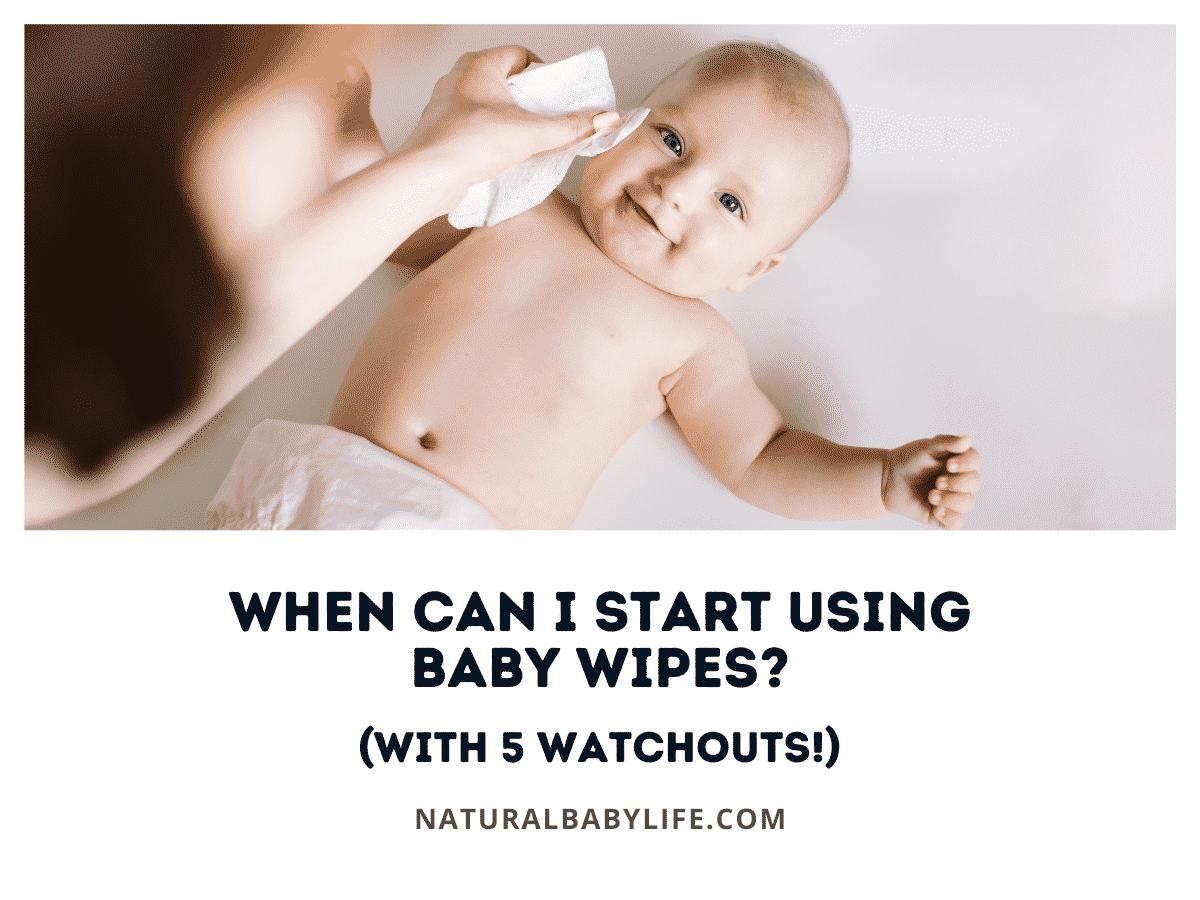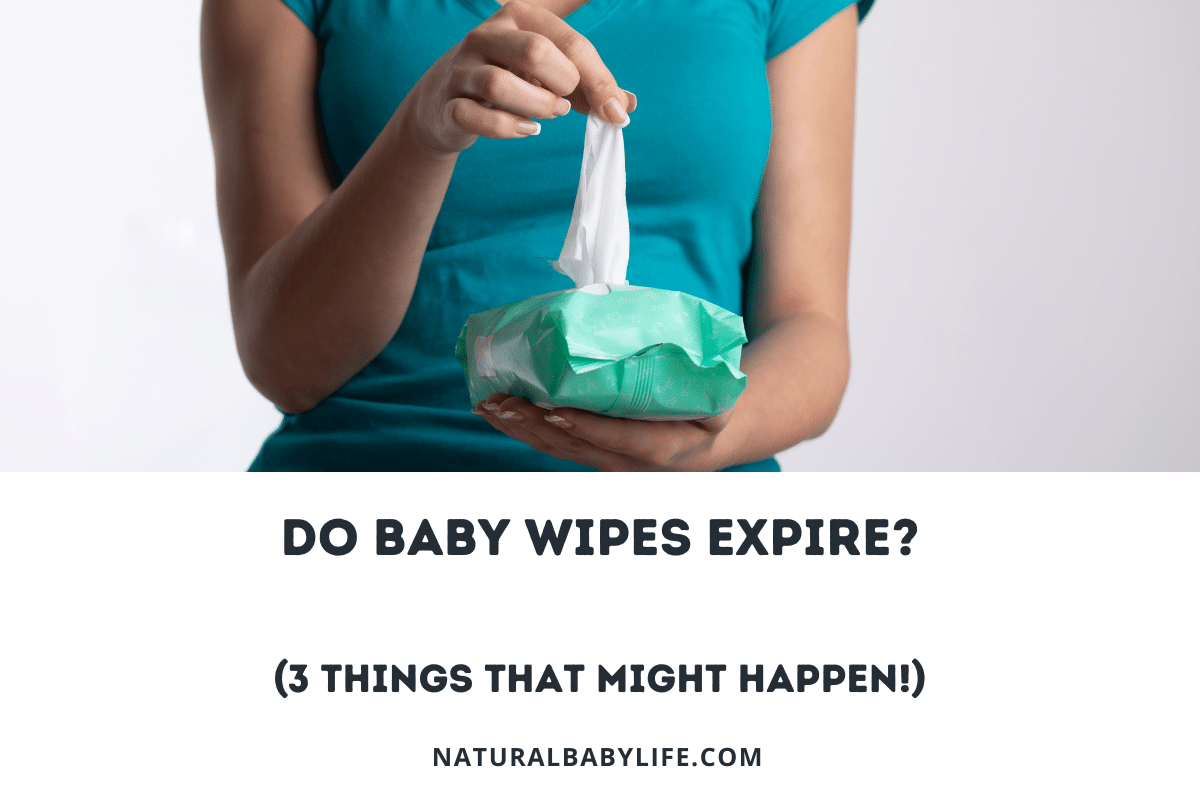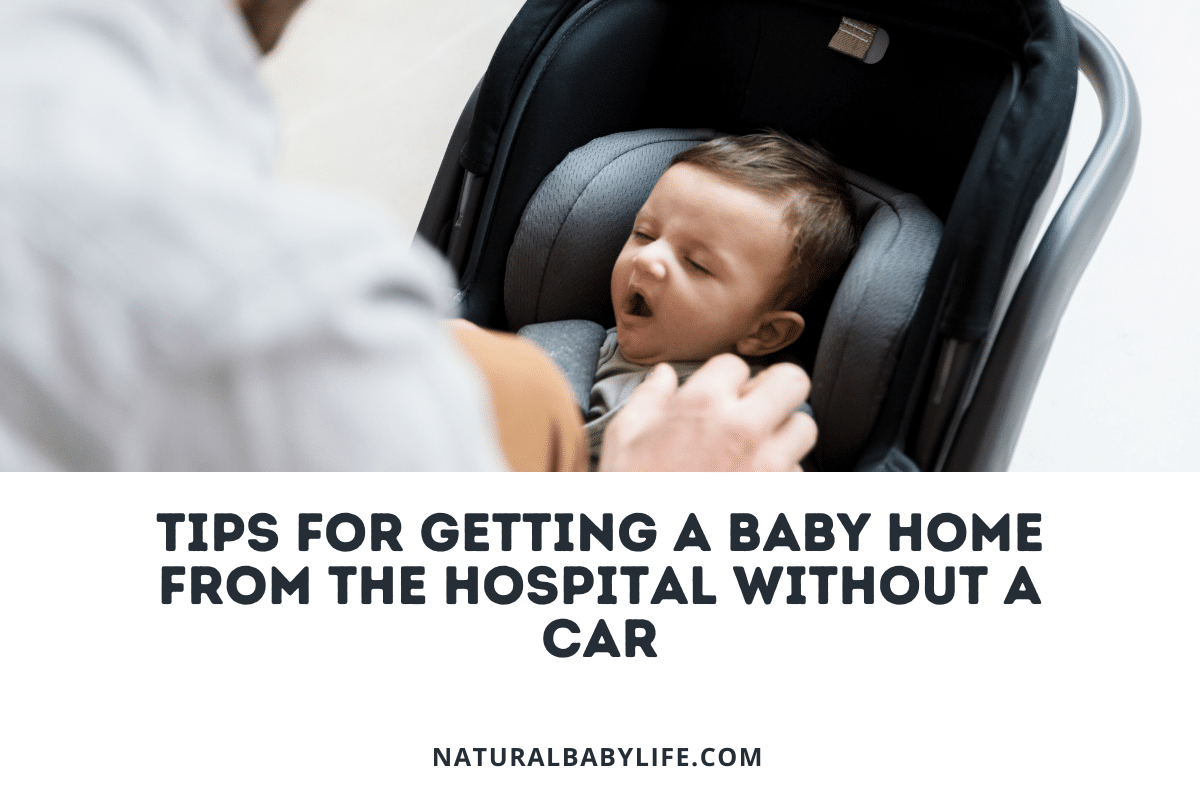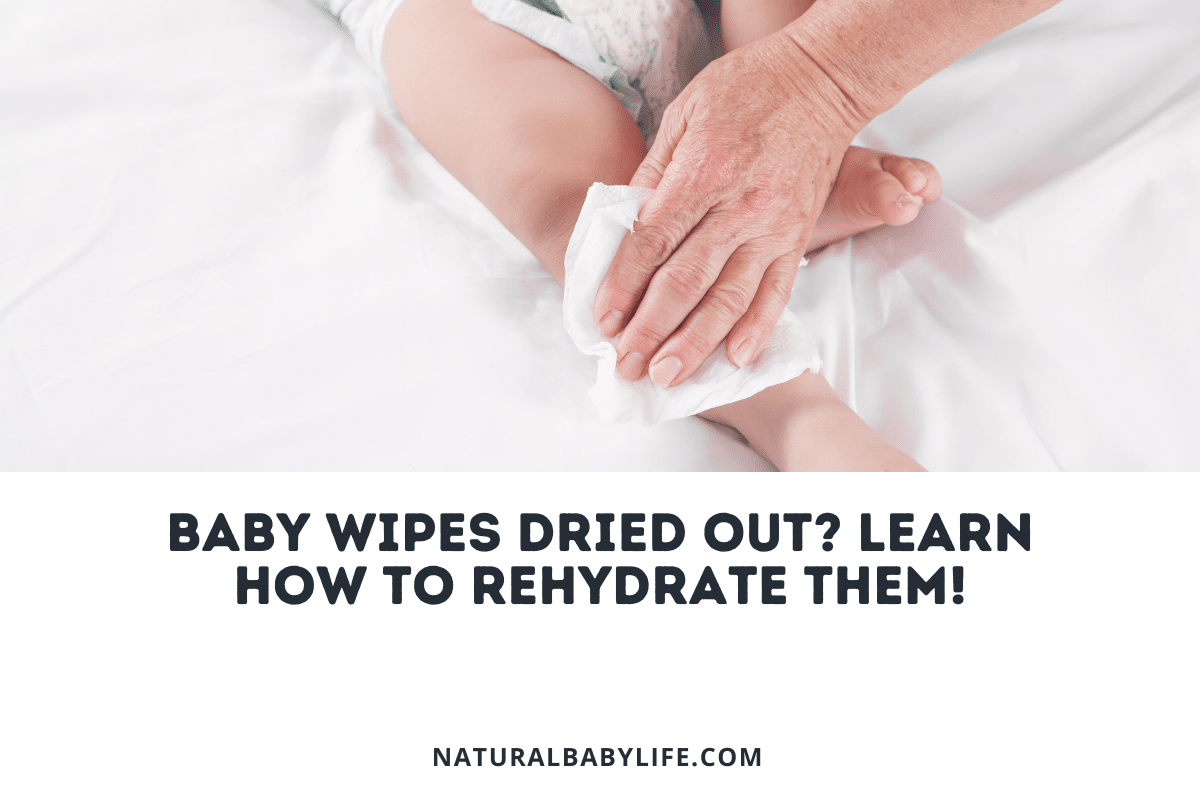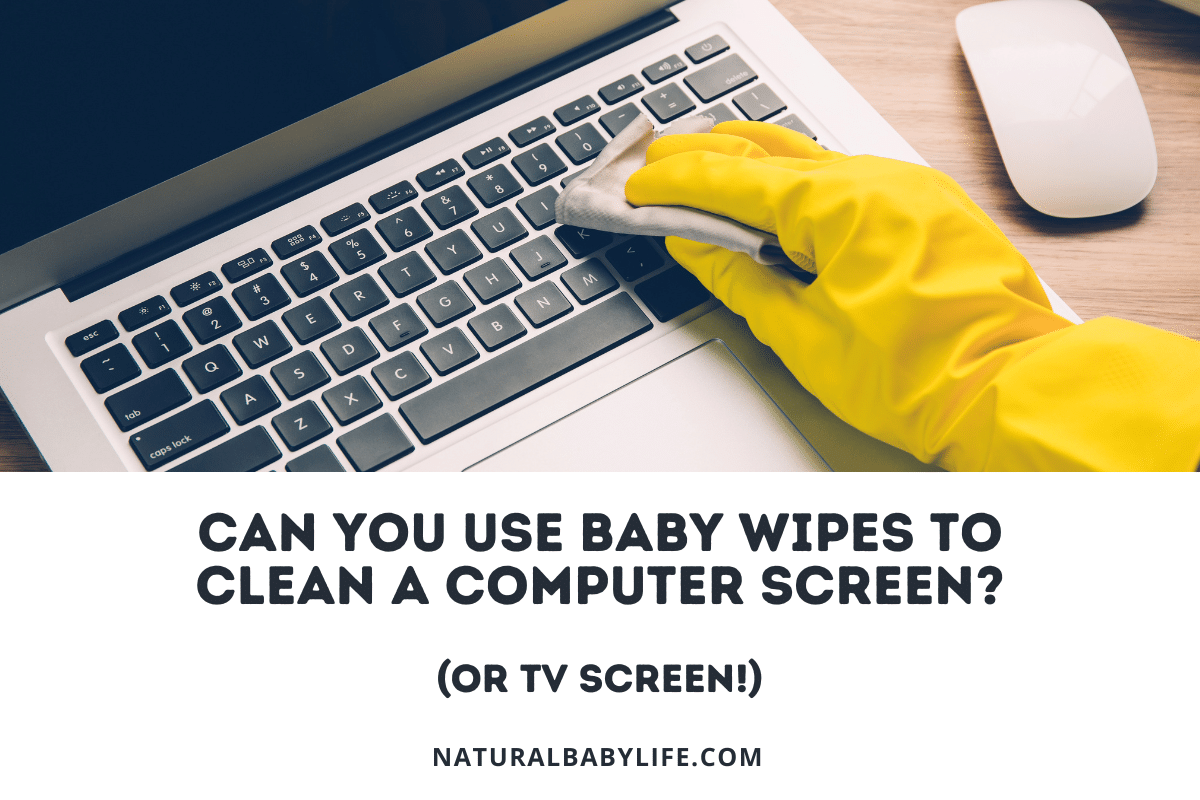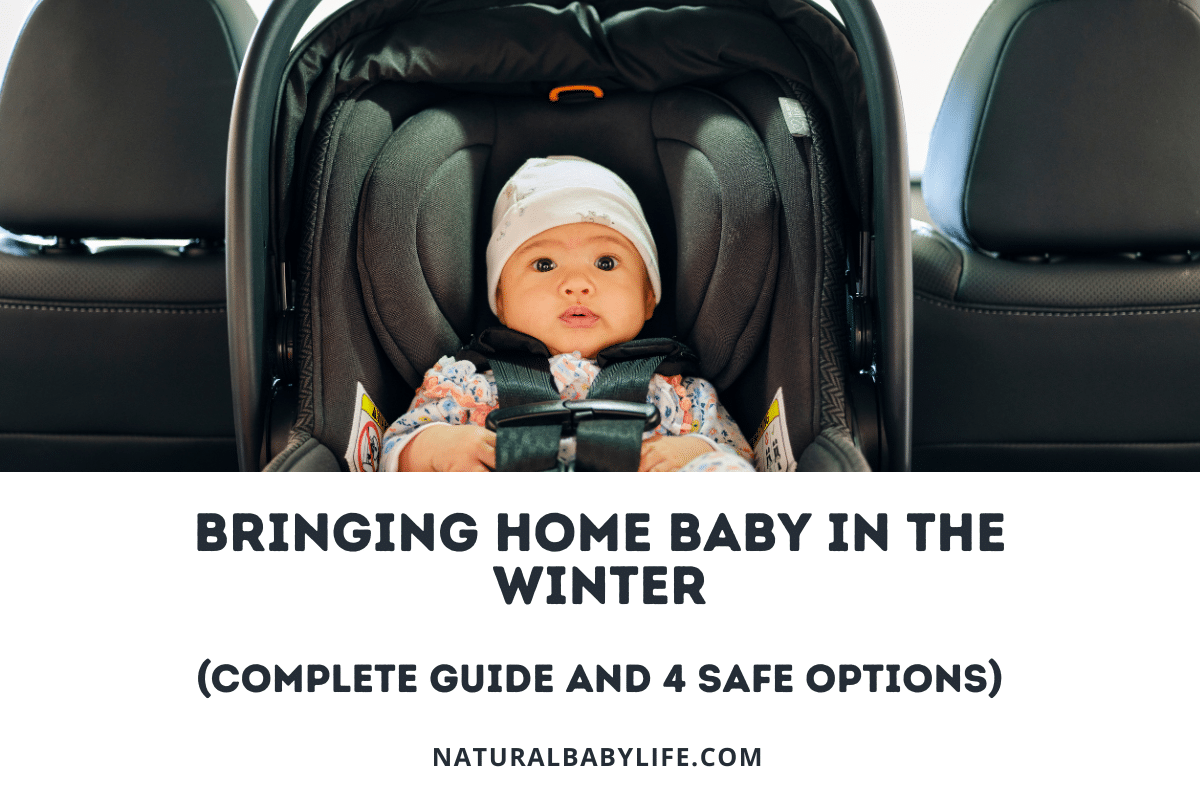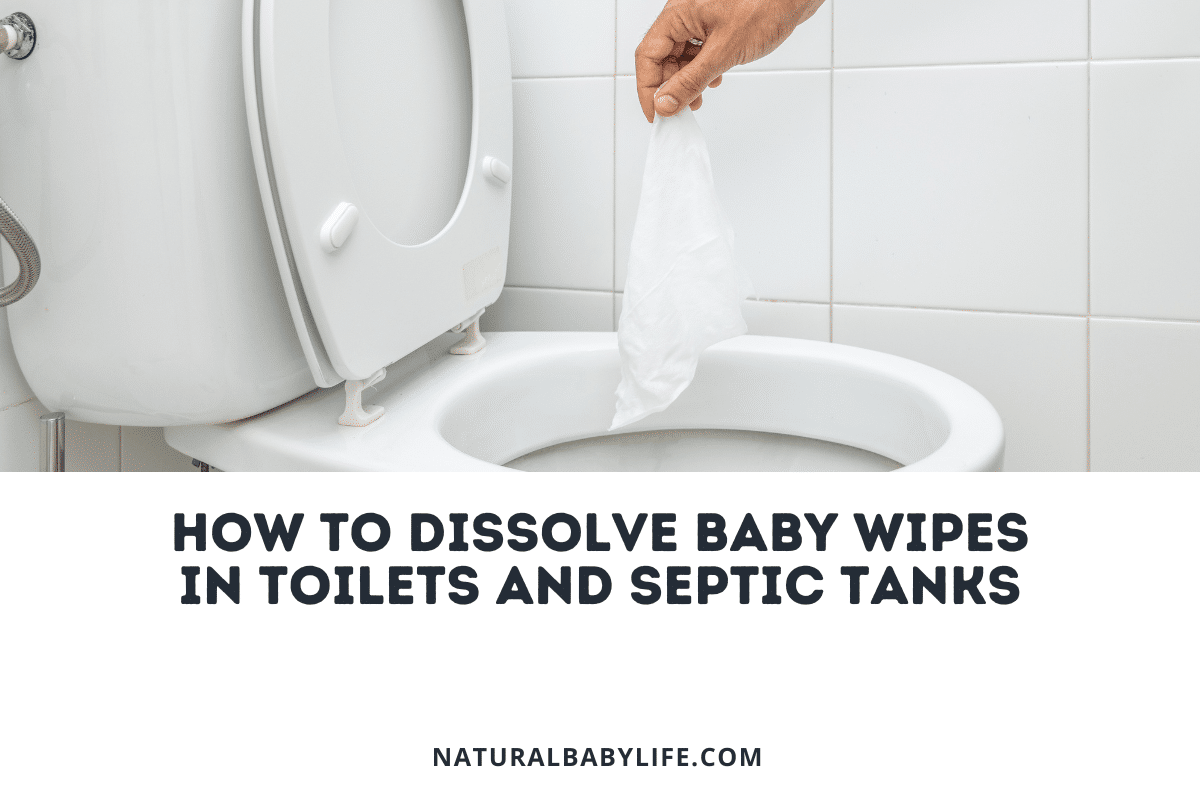Any parent will tell you babies are sweet, precious, and extremely messy! Baby wipes are an indispensable staple of baby bags everywhere. Is it safe to start using baby wipes on your newborn immediately?
You should wait until your baby is between two and four weeks old before using baby wipes on their sensitive skin. Until then, your baby’s skin hasn’t had the time to mature and build resistance to any potential irritants. A premature baby’s skin will take longer to build up a proper barrier, so you should wait six to eight weeks for them.
Keep reading to learn more about when it’s time to use baby wipes on your newborn and more about why it’s important to wait.
Table of Contents
When can you use baby wipes on a newborn?
Your little one’s skin continues to develop after birth.
For a little more than two weeks after birth, your baby’s skin won’t be able to absorb water or remain hydrated as well as an older child’s and is vulnerable to several types of damage:
- Microbial infections
- Skin diseases
- Chemical damage
Because of these reasons many hospitals and pediatricians that you wait two to four weeks before using baby wipes on your newborn.
If your little one was premature, their skin will take a few extra weeks to develop. So with them, it is good to wait closer to six to eight weeks before using baby wipes.
Can you use baby wipes to clean your newborn?
Many wipes on the market are over 98-percent water and will be great to use on your baby’s hands, feet, face, and tush!
After two to four weeks of allowing your little one’s skin to mature, it will be completely fine to clean your baby with wipes.
Baby wipes aren’t just for diaper changing time, either.
Summertime means it’s time to take the baby out and play – but summer also means heat and humidity, which can make your baby fussy fast. Baby wipes can be used to not only clean dirt and sticky sweat off your little one, but they can moisturize and cool your baby’s skin down as well!
What can I use before wipes?
It’s recommended that you not use wipes before your baby is at least two weeks old, but that’s not going to stop your little one from making messes! What do you do in the meantime?
For very small babies, you want to use the mildest, most gentle cleaning option possible. When your baby needs to be wiped down, use a cotton ball or pad that has been dipped in warm water.
If you absolutely need to use a wipe, Water Wipes Baby Wipes are probably your best bet. They are specially designed to be good for sensitive skin and are 99.9% water.
Do you want to learn more about what wipes are best for newborns? Check out this article with some great recommendations and a detailed list of ingredients.
5 watch-outs for when to start using baby wipes
Baby wipes have a lot of positive uses for you and your little one. But it’s important to remember your baby’s little body is still growing and developing.
What works and is safe for one baby may not be safe for another. There are some things you need to watch out for with your baby’s wipes.
To help keep your little one safe, keep reading to find out five things to watch out for are with your baby’s skin and wipes.
Newborn skin is protected by the vernix caseosa
The vernix caseosa forms during the first trimester and is a creamy white buttery film that covers many newborns. Depending on how long before or after your due date your baby is born, there may be more or less vernix caseosa on them.
For a long time, babies would have to be wiped down after birth, removing the vernix caseosa. However, the WHO now recommends leaving it on for 24-hours after the baby is born.
Here are some of the reasons this milky substance is so good for babies:
- It can serve as a lubricant during childbirth, making it easier for your baby to make its way down the birth canal. The more help, the better!
- After your baby is born, the vernix caseosa helps your newborn fight off bacteria. It will also allow your little one to retain moisture in their developing skin.
- While pregnant, your baby may swallow some of it down! It’s thought the vernix caseosa can help develop the good bacteria in your baby’s tummy.
Many baby wipe brands contain irritating chemicals
There are a lot of great baby wipes on the market today, but there are a few you need to watch out for.
Many baby wipe brands have chemicals in their wipes that can irritate your newborn baby. This includes popular brands like Parent’s Choice, Huggies, Fifi & Friends, Aleva Naturals, and others. All of these brands have multiple choices when it comes to wipes, some better than others.
Here are some of the chemicals you need to be on the lookout for a while you shop:
- Diazolidinyl Urea
- Glyoxal
- Methenamine
- Quaternium-15
- Polyoxymethylene Urea
- PEG-75
- Ceteareth-20
- Polysorbate-20
- Tocopheryl Acetate
- Phenoxyethanol
Newborn skin can be more susceptible to irritants
Your newborn looks so sweet and fragile – because they are! Their little skin is a significant part of what makes your little one so fragile and vulnerable.
A newborn’s skin barrier is nowhere near as developed as older children and adult skin. Because of this, newborns are very susceptible to irritants in their environments. Their little skin is much thinner than older children’s. Dryness leads to moisture loss that can cause their skin to crack, forming pathways for bacteria to cause infections.
You can do everything right, including using safe baby wipes, and your little one’s skin will still break out in rashes from time to time. Often this is normal and doesn’t mean anything is wrong; however, if your baby gets overly fussy or the rash doesn’t clear up, you should call your pediatrician and see what they recommend.
Go slow with your newborn’s skin
Your baby is going to be exposed to a world of chemicals and pollutants once they are born.
If your baby breaks out in a rash, it can be hard to pinpoint the exact cause. Whether it’s new foods, lotions, or baby wipes, it’s wise to slowly introduce your little one to new products.
This way, you will have a much better idea of what might be causing your baby’s breakout!
Your newborn will get a rash
It’s not a question of if your baby will break out in a rash, but when!
Introducing your little one to new things slowly can help identify the culprits. Here are some common irritants:
- Fragrances
- Moisture
- Chemicals
- Allergies
- Fabrics
- Heat
- Friction
There is no need to panic when your newborn breaks out. Just keep the area affected clean and dry and keep a watch on it.
If it doesn’t get better in a couple of days, or it starts to bother your baby, give your doctor a call and let them take a look.

